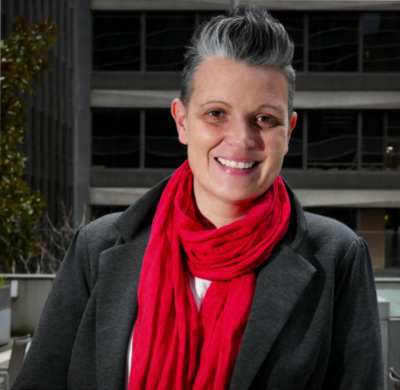
Foundation rating system reveals how funders can do better
Posted on 01 May 2025
A rating system developed by UK foundations offers valuable insights into how grantmakers around…
Posted on 01 May 2025
By Jen Riley, chief impact officer, SmartyGrants

With the sector juggling restricted grants, tight timelines, high-stakes acquittals, and a must-succeed narrative, it’s no wonder many organisations default to “polished” reporting.
It’s not about misleading – it’s about survival. It’s about trying to be seen as worthy of support in a system that often equates complexity with risk, a system that makes it genuinely hard to communicate impact with honesty, clarity, and confidence.
So we report what’s safe. We soften what’s tricky. And we miss out on the real gold: the insights that would help us do better.

At a recent Queensland Council of Social Service (QCOSS) gathering, I shared this message with grantmakers and changemakers: we don’t need more data – —we need a better relationship with the data we already have.
If we want to shift the culture, we need to shift the conversation. That starts with reframing the way we talk about data.
Instead of “Subjective participant experience relating to interpersonal safety and dignity,” how about: “Did participants feel safe and respected?”
Instead of “Participant likelihood to recommend program to others,” try: “Would they tell a friend to come along?”
Plain language is not a downgrade. It’s an invitation – for your board, your team, your funders – to lean in and actually engage.
And when you combine the resulting data with context and a participant voice? That’s where real meaning lives.
“I walked in expecting to feel awkward and leave early. But I stayed the whole session. People asked my pronouns, used them, and actually listened. I didn’t know how much I needed that until it happened.” – Alex, 19
No bar chart can carry the kind of impact that Alex’s personal account does. Pair it with data, and it becomes a powerful insight, not just a number.
To the funders reading this: ask good questions. Make room for grey areas. Reward curiosity."

We often treat impact reporting like a finish line. But what if it were more like a feedback loop?
The organisations I see reporting their impact well are creating space for reflection. They’re experimenting with dashboards, yarning circles, even art. They’re designing reports for different audiences and using the 1-3-25 model to give everyone something they can actually use (one page of main messages, a three-page executive summary, and no more than 25 pages of findings).
They’re designing reports for different audiences, and using the 1-3-25 model to give everyone something they can actually use (one page of main messages, a three-page executive summary, and no more than 25 pages of findings).
Crucially, they’re transparent about their achievements and findings.
This isn’t a call-out. It’s a call-in.
To the funders reading this: ask good questions. Make room for grey areas. Reward curiosity.
To the not-for-profits: you’re doing hard work under complex conditions. Don’t be afraid to show what you’ve learned as well as what you’re achieved.
To all of us: let’s stop seeing data as a performance, and start using it as a tool for collective growth.
Because when we shift the culture of data – from fear to reflection, from proof to learning – we make it easier for everyone in the system to do better work.
For grantmakers who want more on impact without performance pressure, I recommend visiting simna.com.au and exploring how SmartyGrants is helping grantmakers to have braver conversations about data over through its new analytics tools.

Posted on 01 May 2025
A rating system developed by UK foundations offers valuable insights into how grantmakers around…

Posted on 01 May 2025
With the sector juggling restricted grants, tight timelines, high-stakes acquittals, and a…

Posted on 13 Mar 2025
In a February 2025 piece, Maria Chertok and Chandrika Sahai say there's a growing awareness within…

Posted on 10 Mar 2025
Signing on a £1 million (AU$1.93 million) grants program celebrating maritime histories around the…

Posted on 10 Mar 2025
Adam Ognall, executive director of partnerships and practice at Philanthropy Australia, considers…

Posted on 20 Nov 2024
A leading thinker in digitally-led government and business transformation, Sanja Galic, believes…

Posted on 20 Nov 2024
A leading UK charity think tank and consultancy says charities must better measure and use data if…

Posted on 24 Sep 2024
Former professional grantwriter Kylie Cirak believes that grantmakers should look more favourably…

Posted on 24 Jul 2024
A “definitive” publication about grant funding in the United Kingdom has collated data and insights…

Posted on 19 Jul 2024
A British small grants scheme is among a handful of grantmakers globally experimenting with…

Posted on 06 Mar 2024
Philanthropic funding for environmental and climate change causes is increasingly rapidly, but not…

Posted on 05 Dec 2023
A young, fast-growing consultancy has won Australia’s most prestigious award for social impact…